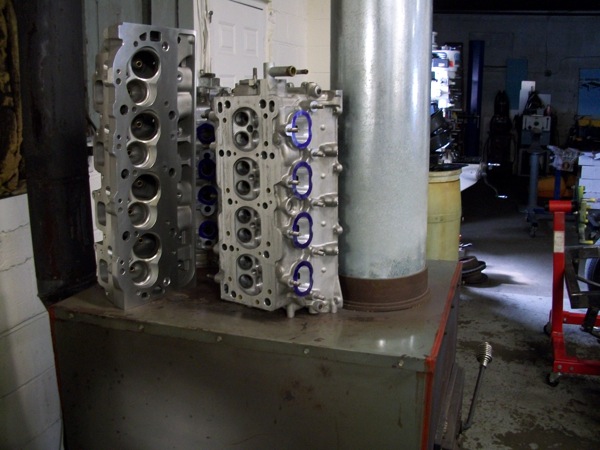Green Strategies: Using Less to Do More
There are several memes associated with “going green.” For some, an image of a person donning a tie-dye shirt while holding up a peace sign may come to mind. For shop owner Stan White, that person’s in clean business attire. “A nicely dressed woman comes to my shop with a smile on her face,” said

Green Strategies: Recycling Options for the Engine Shop
Recycle or dispose. What’s the difference? It’s just trash, right? Not really. The old adage of “one man’s trash is another man’s treasure” profoundly rings true in automotive aftermarket’s own recycling niché: engine building. We know you set aside your metals from a wide range of vehicle repairs and modifications, but when it comes to

Performance Diesel: Turbos & Tuning
There is nothing more fast and furious than the roar of a turbo engine when it is finely tuned and performing efficiently on all levels. Whether pulling gear with the diesel truck or revving the street hot rod, making the most out of the turbo is crucial to most engine builders. As the consumer’s appetite
Green Strategies: Cleaning Techniques & Equipment
It may seem that there’s nothing natural about cleaning an engine. Even after the couple of hours of cleaning time, the engine might be cleaner than the tech working on it – but the engine still needs cleaned (and so does the cleaning crew from time to time). We are long from the days of
Green Strategies: Recycling Scrap and Precious Metals
Engine rebuilding, arguably the truest form of recycling, restores core durability and is part of the 3 Rs: Reduce, Reuse and Recycle. In fact, the very definition of the word “recycle” could be interchanged with “engine rebuilding.” Recycling means to reuse or make (a substance) available for reuse for biological activities through natural processes of
Green Strategies: Efficient Shop Operations
If you really think about it, the engine building/remanufacturing industry is the true essence of going green. After all, you’re recycling: 1. A used product for further performance; 2. The solvents for other use; and 3. Your shop’s revenue as you have to make more profit from fewer rebuilds. “Most motors don’t run
Green Strategies: Handling Shop Waste
The amount of used oil and other hazardous solvents can pile up in a hurry when you’re hustling through the day’s engine work. Then you realize the space at the back of your shop is getting cluttered and your waste tank is filling up. It’s time to take care of the waste. From the early
Today
Although extremely important, the job of cleaning engine parts leaves nothing to the imagination. You’re idly standing with a spray gun in your hand or beside a washer tank or cabinet. It’s a basic, time-consuming procedure, but that grime, oil and baked-on sludge won’t come off by itself. This necessary evil is the difference
